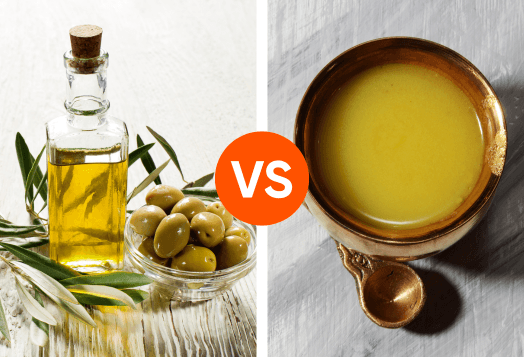We’ve all brushed it off. That groggy feeling in the morning, sore muscles after a light workout, or random mood dips.
You chalk it up to a busy day or poor sleep. But what if it’s not that simple?
What if your body’s quietly sounding an alarm, one that 76% of Indians are ignoring?
Turns out, Vitamin D deficiency in India is way more common than we think, and it could be the real reason you’re not feeling like yourself, especially if you’re into fitness.
Do You Have the Signs of Low Vitamin D?
Let’s find out. Tick what applies to you:
🔘 I feel tired even after sleeping well
🔘 I get frequent colds or flu
🔘 I have muscle aches or slow recovery after exercise
🔘 My mood has been low, anxious or just "meh"
🔘 I rarely go out in direct sunlight
🔘 I have low stamina during workouts
If you check 3 or more, your body might be running low on vitamin D, without you even realising it, even if you think you're eating enough food rich in vitamin D in India. Let’s decode what that means, and more importantly, what you can eat to fix it naturally.
Vitamin D Deficiency — Why We Take It Lightly But Shouldn’t
Despite living in a sun-drenched country, India has one of the highest rates of vitamin D deficiency in the world. Here's why:
We spend most of our time indoors or covered up, which blocks natural vitamin D production from sunlight.
Pollution in cities reduces UVB rays, the ones our skin needs to make vitamin D.
Many Indian diets are vegetarian, and plant-based foods rarely contain vitamin D naturally.
And let’s be honest, we rarely talk about it or get it checked unless there’s a serious health concern.
But here’s the thing: Vitamin D isn’t just about strong bones. Low levels affect:
Your energy
Your mood
Your immunity
Your muscle strength
And yes, your fitness progress
It’s one of those silent issues that creeps up slowly and often hits hardest when you’re pushing for better performance.
Why Fitness Enthusiasts Shouldn’t Ignore Vitamin D
You’re doing all the right things, waking up early, smashing your workouts, and showing up for yoga class. But if you’re still:
Sore longer than usual
Feeling low on energy post-workout
Hitting a wall in your progress
It might not be your training. It might be vitamin D deficiency holding you back.
Here’s what vitamin D does for your fitness:
Boosts muscle strength and endurance
Speeds up recovery after workouts
Supports mental clarity and workout motivation
Balances hormones that impact strength, stamina, and fat metabolism
It’s not just about bones, it’s about performance, energy, and how your body responds to your efforts. Learn how to fuel this performance with our Workout Nutrition guide. And often, the fix begins with simple changes, like adding the right vitamin D foods India already has in its everyday diet.
The Most Common Vitamin D Foods in Indian Diets
Fixing your vitamin D is easier than you think. In fact, most of the solution is in your kitchen.
Fixing your vitamin D isn’t complicated. In fact, most of the solution is already in your kitchen, especially if you’re looking for vitamin D-rich veg foods in India that naturally support energy, recovery, and immunity.
Here’s a list of vitamin D-rich foods commonly eaten across Indian households.
Vegetarian Vitamin D-Rich Foods in India
1. Sunlight-Exposed Mushrooms (Vegetable)
Benefits: One of the rare plant-based sources of vitamin D.
How to Eat: Place under sunlight for 30 mins before cooking; add to curries, stir-fries, or pulao.
2. Fortified Milk – Dairy or Plant-Based (Drink)
Benefits: Added vitamin D3 + calcium.
How to Eat: Use in smoothies, chai, oats; pair with nuts to enhance absorption.
3. Paneer & Cheese (Dairy)
Benefits: Small amounts of Vitamin D; high calcium.
How to Eat: Paneer in tikka or sabzi; cheese in sandwiches, snacks.
4. Ghee & Butter (Dairy Fat)
Benefits: May have trace Vitamin D if made from cow’s milk.
How to Eat: Add to dal, spread on rotis, or use in tadka.
5. Fortified Cereals (Grain)
Benefits: Often enriched with Vitamin D in packaged Indian cereals.
How to Eat: Combine with milk or yoghurt and a handful of seeds.
These are some of the top vitamin D-rich veg foods in India, perfect for those on a vegetarian diet.
Common Non-Vegetarian Vitamin D Foods in India
1. Egg Yolks (Animal Product)
Benefits: Rich in vitamin D and healthy fats.
How to Eat: Boil, scramble, or make a desi-style masala bhurji.
2. Fatty Fish – Mackerel, Sardines, Salmon (Seafood)
Benefits: One of the best natural D3 sources.
How to Eat: Grill or steam; avoid deep frying; add lemon for better mineral absorption.
3. Chicken or Mutton Liver (Organ Meat)
Benefits: Dense source of vitamin D, A, and iron.
How to Eat: Lightly sautéed with masalas; best consumed weekly.
4. Cod Liver Oil (Traditional Supplement)
Benefits: High in Vitamin D and omega-3.
How to Eat: Taken as a capsule or spoonful under guidance.
Fruits and Vitamin D: What's the Real Story?
While fruits themselves don’t provide vitamin D directly, they play a crucial role in how your body absorbs and utilises it. If you’re searching for vitamin D-rich food and fruits in India, the answer isn’t always straightforward, but there are smart ways to make your fruit intake work harder for your body.
Citrus fruits like oranges and lemons: These are rich in vitamin C, which enhances calcium absorption. If you’re wondering whether fruit juices are equally beneficial, check out our blog — Is Fruit Juice Good for Health, a key mineral that works closely with vitamin D for bone and muscle health.
Avocados: Packed with healthy fats, avocados help improve the absorption of fat-soluble vitamins like vitamin D.
Bananas: A good source of magnesium, which plays a crucial role in activating vitamin D in the body.
So while fruits won't directly boost your vitamin D levels, including them in your daily diet can significantly enhance the way your body processes and uses it.
How Much Vitamin D Do You Really Need?
Your body’s vitamin D requirement depends on your age, lifestyle, and overall health. Here’s a quick breakdown of the general daily needs:
Children and teens (1–18 years): 400 to 600 IU per day
Adults (19–60 years): Around 600 IU per day
Older adults, pregnant or breastfeeding women: Up to 800 IU per day
However, these are general guidelines. If you:
Spend most of your time indoors
Have darker skin (which produces less vitamin D from sunlight)
Wear full-coverage clothing regularly
Follow a strict vegetarian or vegan diet
Or are consistently active with high physical demands
…you may need higher levels of vitamin D to stay balanced and energised.
The best way to know what your body truly needs? Get a simple blood test. It’s a smart first step, especially if you’re feeling unusually fatigued, sore, or stuck in your fitness journey.
What If You're Still Not Feeling Like Yourself?
Sometimes, even when you’re doing all the right things, eating food rich in vitamin D in India, getting sunlight, and training consistently, you still don’t feel that spark.
This is when the missing piece isn’t more effort, it’s the right guidance. Having a certified fitness professional or Nutritionist by your side can help you::
Decode hidden nutritional gaps
Align your workouts with your recovery needs
Build a routine that works with your body, not against it
Identify if your vitamin D levels (or other micronutrients) are stalling your progress
You’ve already taken the first step by becoming aware. Now it’s time to personalise your next move with consistent efforts.
Quick Recap — Your Vitamin D Fix Plan
Most Indians are low on vitamin D, even in sunny cities.
Symptoms are subtle: fatigue, low mood, slow recovery, poor immunity.
- Add vitamin D-rich foods to your daily meals (both veg and non-veg). You can also explore our list of Healthy Foods to Eat Every Day for more nutrient-rich options.
Don’t forget the role of fruits like bananas, avocados, and citrus to help with absorption.
Sunlight and healthy fats boost absorption.
Still stuck? Get your levels checked, and don’t hesitate to ask for help
Light Up Your Vitamin D Journey
Your body isn’t asking for much, just a little light, the right nutrients, and some everyday awareness. Whether it’s soaking up the morning sun, adding a handful of mushrooms to your curry, or speaking to someone who understands what your body needs, it all adds up. You don’t have to overhaul your life overnight. Start small, stay consistent, and know that support is always just a click away.
Let your energy, mood, and fitness shine again — one sunny step at a time.
Disclaimer: This article is meant for general informational purposes only and does not substitute professional medical advice, diagnosis, or treatment. Always consult a qualified healthcare provider or certified professional before making changes to your diet, supplement routine, or fitness plan, especially if you're experiencing persistent fatigue, muscle pain, or other health concerns.




